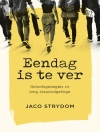Challenges, crises and difficult experiences are an integral part of our lives and an inherent element of every human being’s existence, in addition to being ingrained in the functioning of organisations, institutions and nations. On many occasions humankind has failed to confront them, resulting in the real dramas that we witness on the pages of history. Fortunately, challenges, crises and difficult situations have often been lessons, from which appropriate conclusions have been drawn, thanks to which it was possible to create a better future. In the history of the Church from its very beginning, challenges have been an integral part of working towards a better tomorrow, a better version of oneself and the reality around us and the Church herself. Paradoxically, what was intended to weaken or even destroy the faith became an impulse for its spread. Crisis became the cause of consolidation and development. And so, over the centuries, the Church has faced crises caused by schisms, divisions, unsuitable people in ecclesiastical offices, as well as challenges posed by the surrounding world, political systems and conflicts of human origin. Owing to this publication, the reader will be able to learn about various types of crises and challenges in order to draw conclusions from them, to appreciate the history of the Church through a better knowledge thereof, and all this in order to create a better future. The subject of the book concerns crises and challenges during various periods in the history of the Church up until modern times, including the crisis caused by the Second World War or communism in Central and Eastern Europe.
About the author
Marek Jagodziński, Prof. Dr. hab., is Professor in the Chair of the Orthodox Theology at the Faculty of Theology, The John Paul II Catholic University of Lublin, Poland, and Major Seminary in Radom, Poland.












